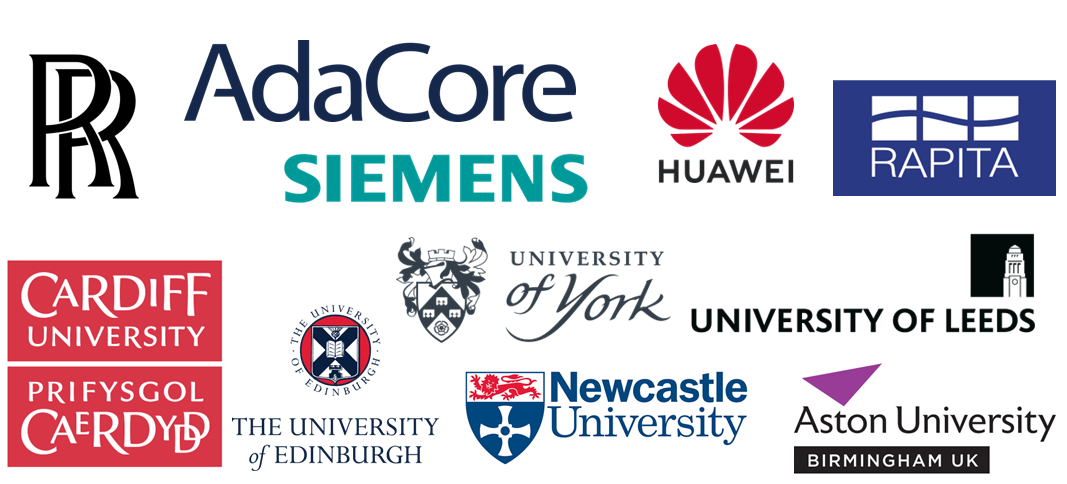Research
Research Interests
My research lies at the intersection of real-time embedded systems (RTES), cyber-physical systems (CPS), and robotics and autonomous systems (RAS). The overarching vision is to advance the development of adaptive, safe, and predictable engineering systems. My key research areas include:
- Real-time scheduling and allocation on multi-cores, network-on-chips (NoC) and time-sensitive networks (TSN);
- Flexible, feedback-driven approaches to resource scheduling of CPS, including multi-robot and transportation systems;
- Digital Twins for the design, simulation, verification, and optimisation of CPS;
- Hardware-software co-design, and investigate timing-predictable hardware;
- Timing assurance of mixed-criticality and safety-critical systems.

Collaborations: I am working with academics and companies from UK, US, France, Germany, Portugal and China (mainland, Taiwan and Hong Kong), and I am open to collaborations related to these topics and fields, addressing open problems and grand challenges both from industry and academia, with a focus on timing and scheduling, and applications in real-time embedded systems, cyber-physical systems and autonomous systems.

Research Grants
- CoI, Innovate UK, SCHEME: Safety Critical Harsh Environment Micro-processing Evolution, £2.2m out of £22m, 05/2023-04/2028
- PI, University Research Priming (URP) Capital Funding, RAVEN: Real-time Adaptive Virtual-twin Environment for Next-generation Robotics in Virtual Production, £48,746, 10/2025-07/2026
- PI, Google Cloud Research Credits Program, Immitation Learning of Humanoids Robots for Filming, £3,731, 10/2025-04/2026
- PI, XR Stories R&D Residency Programme, Digital Twin and Robotics for Virtual Production, 05/2025-04/2026
- PI, ECR Funding, Safe, Adaptive and Resilient Scheduling of Real-Time Systems, £6K, 09/2023-09/2026
Research Projects
➤ SCHEME: Safety Critical Harsh Environment Micro-processing Evolution
(2023 - 2028) Co-I, University of York
Funded by Innovate UK, £2,270,617 (out of £41.7m)
Developing a new generation of UK-native, safety critical and cyber-secure microprocessors for aerospace applications. The project aims to build UK national resilience in high-integrity avionics design and manufacturing. SCHEME has been featured in the UK Government’s Advanced Manufacturing Plan.
➤ MOCHA: Modelling and Optimising Complex Heterogenous Architectures
(2019 - 2022) RA, University of York
Funded by Huawei Technologies Co. Ltd, £985,926
Research into building statistical models of systems and adaptive policies for complex heterogeneous architectures, addressing high overheads and low cache hit rates in real-time systems.
➤ DEIS: Dependability Engineering Innovation for CPS
(2018 - 2019) RA, University of York
Funded by EU Horizon 2020, £313,415
Developing technologies that enable dependable system integration through the concept of Digital Dependability Identity (DDI) for cyber-physical systems.
➤ ATAS: Adaptive Task Scheduling Framework for CPS
(2015 - 2018) PhD Student, University of York
An adaptive real-time scheduling framework for Cyber-Physical Control Systems with hierarchical structure, dynamic WCET analysis, and dual-period operational modes.
Research Involvement
Research projects which I am formally or informally involved:
- The Assuring Autonomy International Programme (AAIP)
- XR Stories
- CoSTAR
- CyPhyAssure
- Future factories in the Cloud (FiC)
Open-Source Software
- dag-gen-rnd: A Randomized Multi-DAG Task Generator for Scheduling and Allocation Research
- DAG Scheduling Simulator on Multiprocessor Systems
- Fixed Priority Scheduling and Controller Co-Design for TSN
- Line-Circle-Square (LCS): A Multilayered Geometric Filter for Edge-Based Detection
Please check my GitHub for more projects.